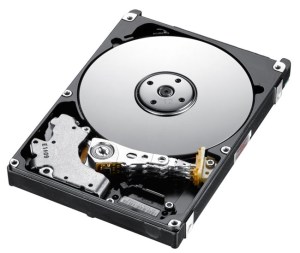
Hard drive and storage developer Seagate has closed a whopper of a deal: Seagate will be buying Samsung’s hard drive manufacturing business for some $1.38 billion dollars in a deal that will see Samsung claiming a 10 percent stake in Seagate. The deal will see Samsung manufacturing controllers for use in Seagate hard drives, and Seagate will in turn supply hard drives for Samsung-manufacturers business consumer electronics and computers. The companies have also agreed to broadly extend their patent cross-licensing agreements, and Samsung will get a seat on Seagate’s board.
“We are pleased to strengthen our strategic relationship with Samsung in a way that better aligns both companies around technologies and products,” said Seagate president, chairman, and CEO Steve Luczo, in a statement. “With these agreements, we expect to achieve greater scale and deliver a broader range of innovative storage products and solutions to our customers, while facilitating our long-term relationship with Samsung.”
The move marks another phase in the rapid consolidation in the hard drive industry. Last month, Western Digital acquired Hitachi’s hard drive business for $4.3 billion, leaving the industry with now three major players: Seagate, Western Digital, and Toshiba.
Samsung is one of the world’s largest manufacturers of flash memory, which is used in a broad range of portable electronics (like mobile phones, camcorders, and media players) and is increasingly common in notebook and desktop computers in the form of solid-state drives (SSDs). Although traditional hard drives still offer more storage capacity at lower price points than flash storage, flash drives have no moving parts and consume less power, making them very appealing for a variety of storage applications, even where portability is not required.
Seagate is financing half the deal with cash, and the other half with stock, and expects the deal will open up new markets for its hard drive products in China and southeast Asia, as well as provide it with a steady source of NAND flash memory as Seagate moves more aggressively into the SSD business, as well as producing SSD/hard drive hybrid storage devices.
The acquisition must be approved by both U.S. and international regulators, but the companies expect the deal to close by the end of the year.
Editors' Recommendations
- The 11 best external hard drives for 2024
- The best NVMe SSD in 2022
- Walmart discounts Seagate hard drives by $15 for the holidays
- Save $47 on this 2TB Seagate External Hard Drive at Amazon for Black Friday
- This 1TB portable external hard drive is just $50 for Memorial Day


